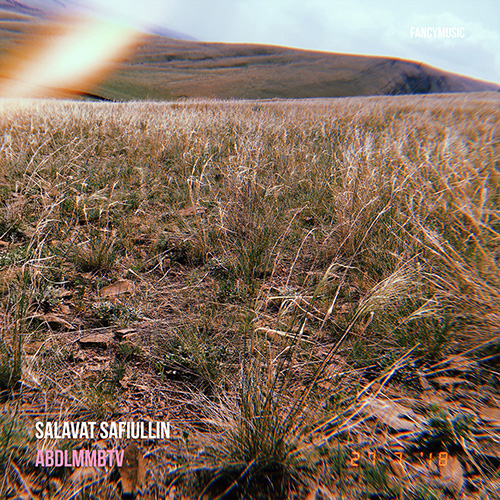
Abdlmmbtv (three fragments from my childhood) – история про сознательное уединение вне цивилизации. Эта работа появилась летом 2018 года, когда я уехал жить в пустующий дом, который остался от моих родственников в маленьком поселение под названием Абдульмамбетово. Место находится на Восточных склонах Уральских гор в Республики Башкортостан. Здесь все мне было знакомо, потому что в этом пустующем доме когда-то жила моя бабушка. Я записывал на диктофон все, что вызывало во мне ассоциации или воспоминания, связанные с этим местом. Эти записи стали основным материалом для всей работы, я разделил их на три фрагмента: фильм, танцующий дождь и ожидание (надежда). Через эти фрагменты, я думаю, мне удалось воссоздать индивидуальную рефлексию на то, с чем знакомится детское сознание. Это встречи с природой, техникой, с обычаями и культурой людей. Именно это с нами и происходит – мы попадаем в жизнь, где учимся понимать, жить и взаимодействовать в этой среде. В этих записях также можно найти отсылки к Башкирской культуре, возможно, в них кто-то найдет этнографические материалы, но для меня самого эта работа – осознанный синтез и переосмысление воспоминаний в аудиоформате.
Салават Сафиуллин
Abdlmmbtv (three fragments from my childhood) is a story about a conscious solitude outside of civilization. This work appeared in the summer of 2018 when I went to live in an empty house that was left from my relatives in a small village called Abdulmambetovo. The place is on the eastern slopes of the Ural Mountains in the Republic of Bashkortostan. Everything was familiar here, because this empty house belonged to my grandmother. I recorded everything that had associative memories related to this place. These recordings became the basic material for the whole work. I divided them into three fragments: a film, dancing rain and expectation. Through these fragments, I think, I was able to recreate the individual reflection on what the children’s mind is experiencing while learning: meetings with nature, technology, with the people’s customs and culture. After all, this is what happens to us – we get into our lives, where we learn to understand the environment, live in it and interact with it. In these records one can also find references to the Bashkir culture, and perhaps someone will see it as an ethnographic material, but for me it is a conscious synthesis and rethinking of memories in the audio format.
Salavat Safiullin, translated by Oleg Krokhalev